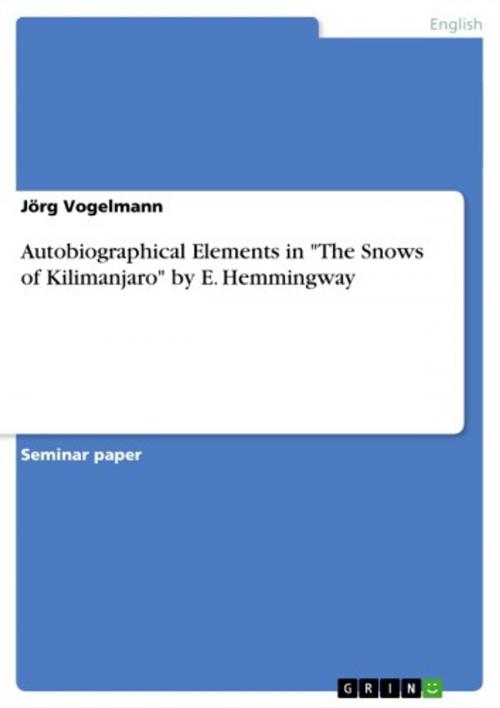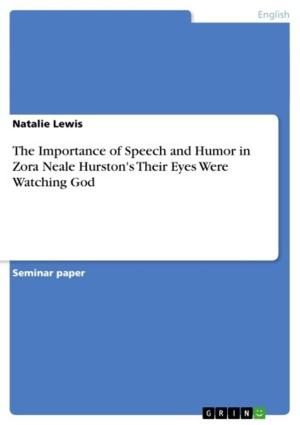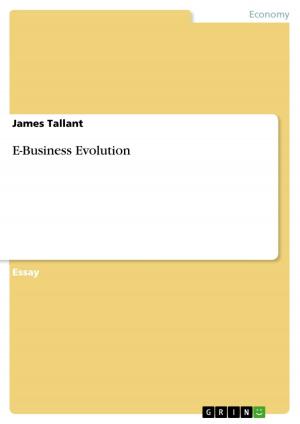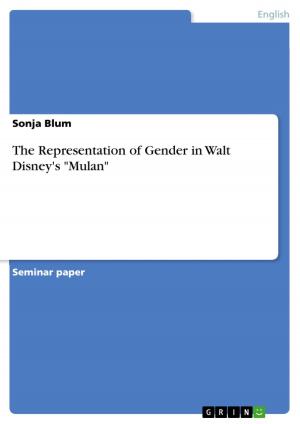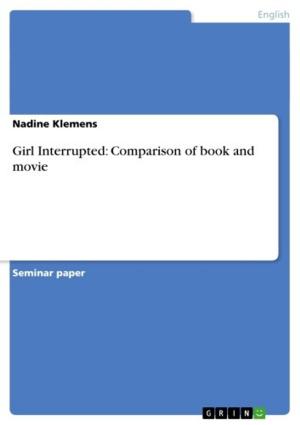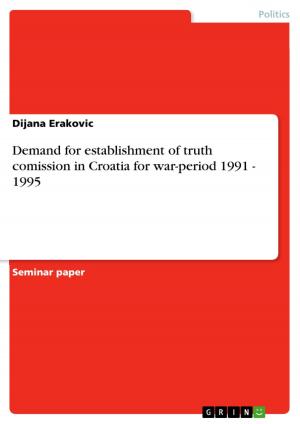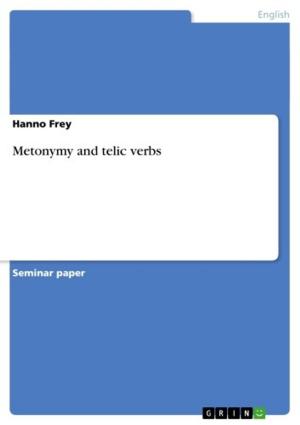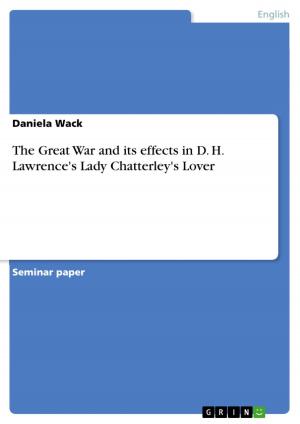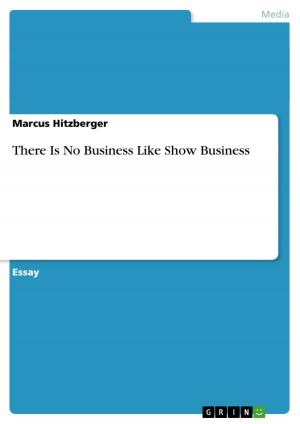Autobiographical Elements in 'The Snows of Kilimanjaro' by E. Hemmingway
Nonfiction, Entertainment, Drama, Anthologies| Author: | Jörg Vogelmann | ISBN: | 9783640168798 |
| Publisher: | GRIN Publishing | Publication: | September 22, 2008 |
| Imprint: | GRIN Publishing | Language: | English |
| Author: | Jörg Vogelmann |
| ISBN: | 9783640168798 |
| Publisher: | GRIN Publishing |
| Publication: | September 22, 2008 |
| Imprint: | GRIN Publishing |
| Language: | English |
Seminar paper from the year 2004 in the subject American Studies - Literature, grade: 2,0, University of Stuttgart (Institut für Literaturwissenschaft: Anglistik/Amerikanistik), course: Introduction to Literary Studies, 4 entries in the bibliography, language: English, abstract: 'The Snows of Kilimanjaro' is among Ernest Hemingway's most impressive short stories. While the fascinating and mysterious African background forms an almost adventurous or dangerous setting, the story itself deals with the major motifs of human life: Love, death, loss, culture versus wilderness or self-realization and sense of life are just some of these. The existentialistic text about many secrets of human life with its ironic as well as deeply serious messages however reveals also the author behind the story, Ernest Hemingway. He himself called his literary works biographic and according to many critics, 'The Snows of Kilimanjaro' can be seen as his most autobiographical one where he deals with issues having concerned him during all of his life. Not only his relationship to women but also topics like war, death, love, sex, nihilism, existentialism, travelling, hunting, wilderness and his fear of losing his talent are some of the themes Hemingway coped with during his adventurous and colourful life - and they also play an important role in his African short story. This term paper firstly examines the main themes in 'The Snows of Kilimanjaro'. Three themes will be considered, each theme followed by possible interpretations. The second part will then concentrate on symbols in the text and their possible meanings. However, the main focus of the term paper will be on the autobiographical elements in the story: It will bring out parallels between Hemingway's real life and elements in 'The Snows of Kilimanjaro'. Thus, situations or traits of characters in the novel will be compared to similar experiences Hemingway made during his adventurous life. The examination of all these similarities between the life of 'Papa' and the text will then be the basis for a short conclusion. The term paper might help us to better understand the author behind the story as a man with his sorrows, thoughts, problems and motives. Knowing the short story with its symbols and themes as well as its autobiographical background may lead us to a more comprehensive approach to the fascinating world of the literature and life of Ernest Hemingway.
Seminar paper from the year 2004 in the subject American Studies - Literature, grade: 2,0, University of Stuttgart (Institut für Literaturwissenschaft: Anglistik/Amerikanistik), course: Introduction to Literary Studies, 4 entries in the bibliography, language: English, abstract: 'The Snows of Kilimanjaro' is among Ernest Hemingway's most impressive short stories. While the fascinating and mysterious African background forms an almost adventurous or dangerous setting, the story itself deals with the major motifs of human life: Love, death, loss, culture versus wilderness or self-realization and sense of life are just some of these. The existentialistic text about many secrets of human life with its ironic as well as deeply serious messages however reveals also the author behind the story, Ernest Hemingway. He himself called his literary works biographic and according to many critics, 'The Snows of Kilimanjaro' can be seen as his most autobiographical one where he deals with issues having concerned him during all of his life. Not only his relationship to women but also topics like war, death, love, sex, nihilism, existentialism, travelling, hunting, wilderness and his fear of losing his talent are some of the themes Hemingway coped with during his adventurous and colourful life - and they also play an important role in his African short story. This term paper firstly examines the main themes in 'The Snows of Kilimanjaro'. Three themes will be considered, each theme followed by possible interpretations. The second part will then concentrate on symbols in the text and their possible meanings. However, the main focus of the term paper will be on the autobiographical elements in the story: It will bring out parallels between Hemingway's real life and elements in 'The Snows of Kilimanjaro'. Thus, situations or traits of characters in the novel will be compared to similar experiences Hemingway made during his adventurous life. The examination of all these similarities between the life of 'Papa' and the text will then be the basis for a short conclusion. The term paper might help us to better understand the author behind the story as a man with his sorrows, thoughts, problems and motives. Knowing the short story with its symbols and themes as well as its autobiographical background may lead us to a more comprehensive approach to the fascinating world of the literature and life of Ernest Hemingway.
